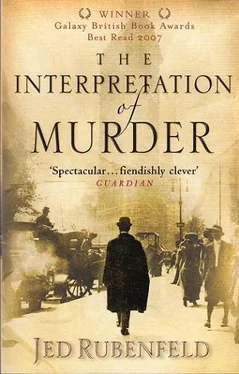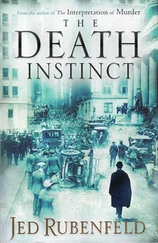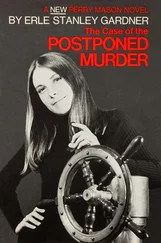Jed Rubenfeld - The Interpretation of Murder
Здесь есть возможность читать онлайн «Jed Rubenfeld - The Interpretation of Murder» весь текст электронной книги совершенно бесплатно (целиком полную версию без сокращений). В некоторых случаях можно слушать аудио, скачать через торрент в формате fb2 и присутствует краткое содержание. Жанр: Исторические приключения, на английском языке. Описание произведения, (предисловие) а так же отзывы посетителей доступны на портале библиотеки ЛибКат.
- Название:The Interpretation of Murder
- Автор:
- Жанр:
- Год:неизвестен
- ISBN:нет данных
- Рейтинг книги:5 / 5. Голосов: 1
-
Избранное:Добавить в избранное
- Отзывы:
-
Ваша оценка:
- 100
- 1
- 2
- 3
- 4
- 5
The Interpretation of Murder: краткое содержание, описание и аннотация
Предлагаем к чтению аннотацию, описание, краткое содержание или предисловие (зависит от того, что написал сам автор книги «The Interpretation of Murder»). Если вы не нашли необходимую информацию о книге — напишите в комментариях, мы постараемся отыскать её.
The Interpretation of Murder — читать онлайн бесплатно полную книгу (весь текст) целиком
Ниже представлен текст книги, разбитый по страницам. Система сохранения места последней прочитанной страницы, позволяет с удобством читать онлайн бесплатно книгу «The Interpretation of Murder», без необходимости каждый раз заново искать на чём Вы остановились. Поставьте закладку, и сможете в любой момент перейти на страницу, на которой закончили чтение.
Интервал:
Закладка:
'I do.'
'Can I ask you something?' said Littlemore. 'Say a girl loses her memory. Just comes up empty. Then her memory comes back. Can you put money on it, when it comes back? Can you bank on it?'
'No,' I replied. 'It could be false. It could be fantasy, mistaken for memory.'
'But you believe her?'
'Yes.'
'So what are you saying, Doc?'
'I don't know what I'm saying,' I said. 'Can I ask you something, Detective? What were you going to tell the mayor in Miss Acton's room?'
'I just wanted to remind him that Coroner Hugel — he's in charge of the case — thought Banwell was the killer too.'
'Thought so?' I asked. 'You mean he doesn't anymore?'
'Well, he can't anymore, not after what the mayor just said,' Littlemore replied.
'Couldn't Banwell have attacked Miss Acton even if someone else killed the other girl?'
'Nope,' answered the detective. 'We've got proof. It was the same guy both times.'
I went back inside, unsure of myself, my patient, my situation. Was it conceivable that McClellan was covering for Banwell? Would Nora be safe at her house? The front clerk called out my name. There was a letter for me, just delivered. It proved to be from G. Stanley Hall, president of Clark University. The letter was long — and deeply disturbing.
Outside the Hotel Manhattan, Detective Littlemore made for the cabstand.
From the old hack last night, Littlemore knew that the black-haired man — the one who left the Balmoral at midnight on Sunday — had climbed into a red and green gas-powered taxi in front of the Hotel Manhattan. That piece of information told the detective a good deal. Only a decade previously, every taxi in Manhattan had been horse-drawn. By 1900, a hundred motorized taxis tooled around the city, but these were electrically powered. Weighed down by their eight-hundred-pound batteries, the electric taxis were popular but ponderous; passengers occasionally had to get out and help push when going up the rare steep incline. In 1907, the New York Taxicab Company launched the first fleet of gasoline cars for hire, equipped with meters so that riders could see the fare. These cabs were instant hits — hits, that is, with the better class, who alone could afford the fifty-cents-per-mile charge — and quickly came to outnumber all other cabs, electric and horse, in the city. You always knew a New York Taxicab when you saw one, because of its distinctive red and green paneling.
Several of these vehicles were parked at the Hotel Manhattan cabstand. The drivers told Littlemore to try the Allen garage on Fifty-seventh Street, between Eleventh and Twelfth avenues, where New York Taxicab had its main office and where he could easily find out who had been working the graveyard shift on Sunday. The detective's luck was good. Two hours later, he had answers. A driver named Luria had picked up a black-haired man in front of the Hotel Manhattan after midnight last Sunday. Luria remembered it distinctly, because the man had come not out of the hotel but out of a hackney. Littlemore also learned where the black-haired man had gone, and the detective went to that destination — a private house — himself. There his luck ran out.
The house was on Fortieth just off Broadway. It was a two-story affair, with a gaudy knocker and thick red curtains on its windows. Littlemore had to knock five or six times before an attractive young woman answered. The girl was considerably underdressed for the middle of the afternoon. When Littlemore explained that he was a police detective, she rolled her eyes and told him to wait.
He was shown to a parlor with thick Oriental carpets on the floor, a dazzling array of mirrors on the walls, and a smother of purple velour on the furniture. The odor of tobacco and alcohol clung to the folds of the curtains. A baby was crying upstairs. Five minutes later, another woman, older and quite fat, came down the red-carpeted stairs in a claret-colored robe.
'You've got a lot of nerve,' said this woman, who introduced herself as Susan Merrill — Mrs Susan Merrill. From a wall safe concealed behind a mirror, she withdrew a carved iron strongbox, which she opened with a key. She counted out fifty dollars. 'Here. Now get out. I'm already late.'
'I don't want your money, ma'am,' said Littlemore.
'Oh, don't tell me. You make me sick, all of you. Greta, get back in here.' The underdressed girl lounged in, yawning. Although it was a quarter past three, she had in fact been asleep until Littlemore knocked at the door. 'Greta, the detective doesn't want our money. Take him to the green room. Make it quick, mister.'
'I'm not here for that either, ma'am,' said Littlemore. 'I just want to ask you a question. There was a guy who came here late Sunday night. I'm trying to find him.'
Mrs Merrill eyed the detective dubiously. 'Oh, so now you want my customers? What are you going to do, shake them down too?'
'You must know some bad policemen,' said Littlemore.
'Is there any other kind?'
'A girl was killed Sunday night,' Littlemore answered. 'The guy who did it whipped her. Tied her up, cut her up pretty good too. Then he strangled her. I want that guy. That's it.'
The woman drew her burgundy robe around her shoulders. She restored her money to the strongbox and shut it. 'Was she a streetwalker?'
'No,' said the detective. 'Rich girl. Really rich. Lived in a fancy building uptown.'
'Well, isn't that a shame. What's it got to do with me?'
'This guy who came here,' Littlemore answered. 'We think he might be the killer.'
'Do you have any idea, Detective, how many men come through here on a Sunday night?'
'This guy would have been by himself. Tall, black hair, carrying a black case or bag or something.'
'Greta, do you remember anybody like that?'
'Let me think,' mused the dreamy Greta. 'No. Nobody.'
'Well, what do you want from me?' said Mrs Merrill. 'You heard her.'
'But the guy came here, ma'am. The cabbie left him off right outside your door.'
'Left him off? That doesn't mean he came in. I'm not the only house on the block.'
Littlemore nodded slowly. It seemed to him that Greta was a little too blase, and Mrs Merrill a little too eager to see him leave.
Chapter Thirteen
She had asked me to kiss her.
I was walking across town on Forty-second Street, but in my mind's eye I kept seeing Nora Acton's parted lips. I kept feeling her soft throat in my hands. I heard her whisper those two words.
President Hall's letter was in my vest pocket. I should have had only one thought in my head: how to deal with the potential ruination not only of next week's conference at Clark but of Dr Freud's entire reputation, at least in America. All I could see, however, was Miss Acton's mouth and closed eyes.
I didn't fool myself. I knew what her feelings for me were. I had seen it before, too many times. One of my Worcester patients, a girl named Rachel, used to insist on disrobing down to her waist at every analytic session. Each time she offered a new reason: an irregular heartbeat, a rib she feared broken, a throbbing pain in her lower back. And Rachel was just one of many. In all these cases I had never resisted temptation — because I had never been tempted. On the contrary, the emergence of seductive machinations in my analysands struck me as macabre.
Had my patients been more attractive, I doubt their behavior would have inspired in me the same feelings of unwholesomeness. I have no particular virtue. But these women weren't attractive. Most of them were old enough to be my mother. Their desire repulsed me. Rachel was different. She was appealing: long legs, dark eyes — a little close-set, to be sure — and a figure that would have been called good, or better than good. But she was aggressively neurotic, which has never enticed me.
Читать дальшеИнтервал:
Закладка:
Похожие книги на «The Interpretation of Murder»
Представляем Вашему вниманию похожие книги на «The Interpretation of Murder» списком для выбора. Мы отобрали схожую по названию и смыслу литературу в надежде предоставить читателям больше вариантов отыскать новые, интересные, ещё непрочитанные произведения.
Обсуждение, отзывы о книге «The Interpretation of Murder» и просто собственные мнения читателей. Оставьте ваши комментарии, напишите, что Вы думаете о произведении, его смысле или главных героях. Укажите что конкретно понравилось, а что нет, и почему Вы так считаете.












